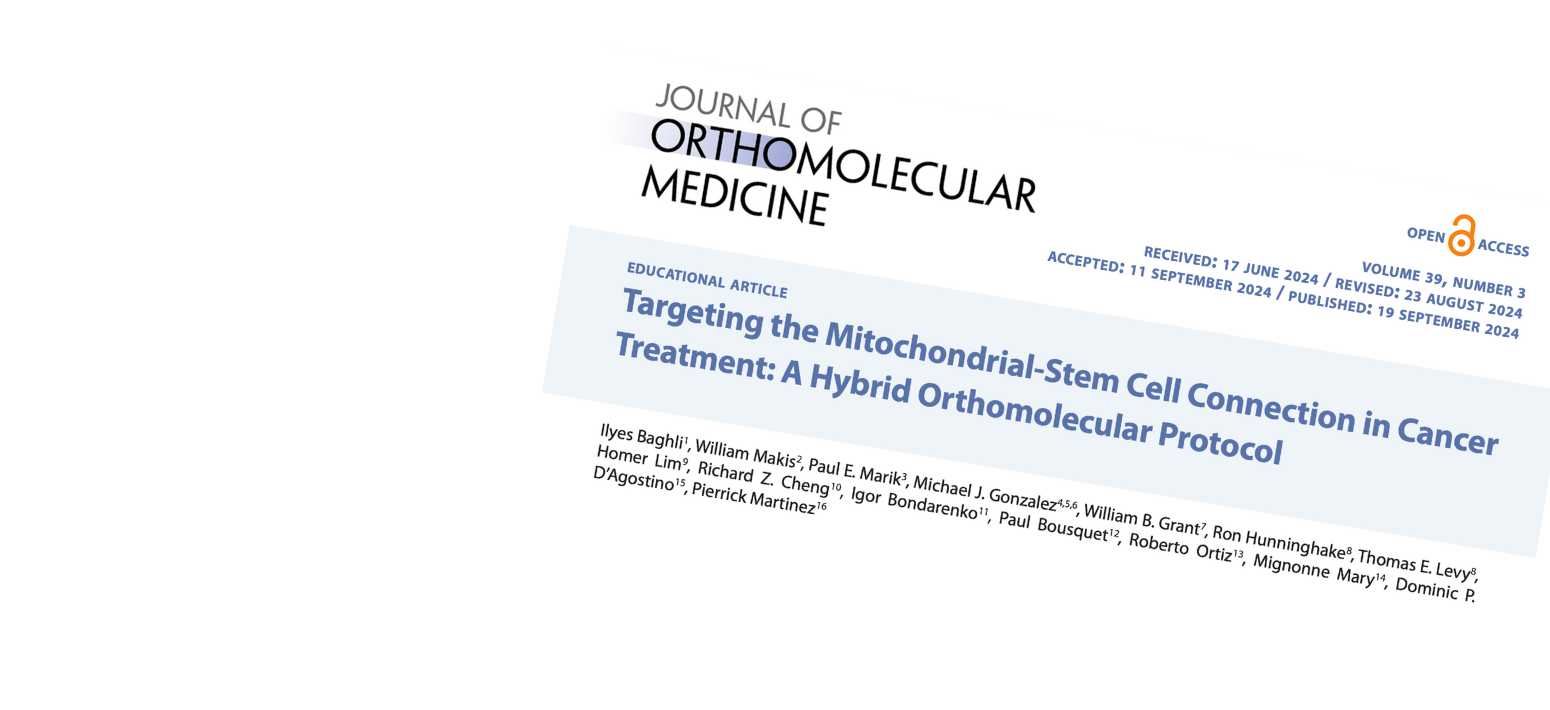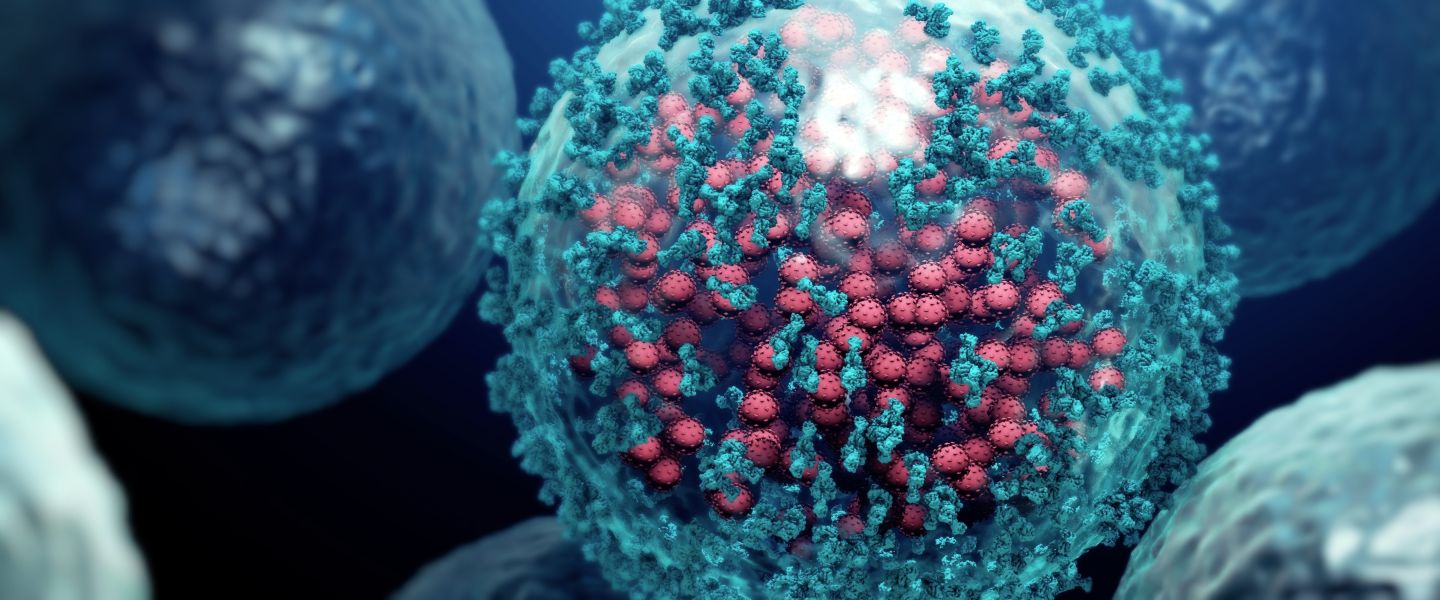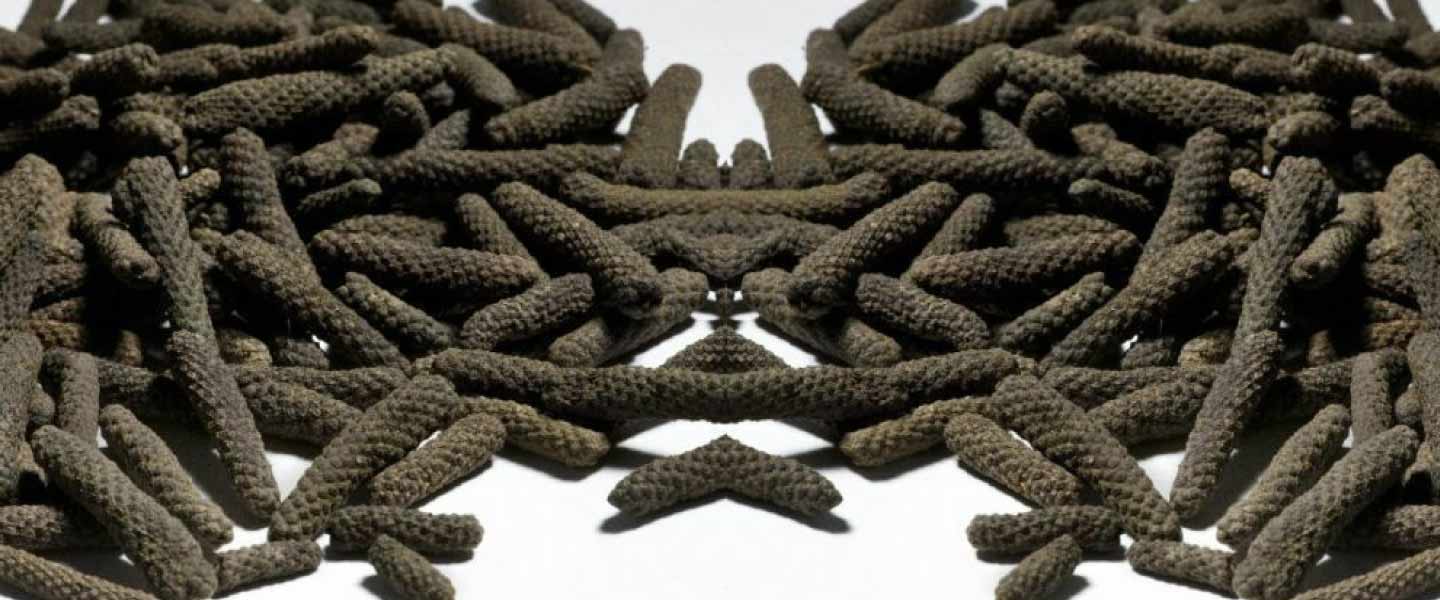SHARING / REPOSTING GUIDELINES: We're very happy to have posts/articles shared as direct links.
However, if you are replicating and re-posting information from this website or our posts, Abbey requests that you:
A) Only ever share articles in part (not in full). (eg. You can lift a paragraph as a way of introducing your readers to the topic) B) Be sure to always provide a direct link/URL back to the full original article here on the MyHealingCommunity.com website. Thanks in advance for your co-operation when sharing and re-posting any and all information that appears on this website.
The Mitochondrial-Stem Cell Connection (MSCC) Theory And Protocol
The MSCC theory proposes that cancer stems from a long-term oxidative phosphorylation (OxPhos) deficiency within stem cells. This deficiency leads to the development of cancer stem cells (CSCs) and atypical energy metabolism, eventually causing cancer. The MSCC theory combines two established concepts: the cancer stem cell theory and the metabolic theory of cancer.
This paper, published in the Journal of Orthomolecular Medicine 2024, is authored by a well-respected group of highly accomplished scientists working with patients and in the labs for many years. It presents a new hybrid orthomolecular protocol designed to target the MSCC. It is based on molecular biology, pharmacology, and clinical research findings. The protocol outlines several therapeutic approaches, including orthomolecules, medications, and complementary therapies.
The goal of this hybrid protocol is to produce combined and synergistic effects that:
1) Enhance OxPhos
2) Block the primary fuel sources for cancer cells (glucose and glutamine)
3) Target CSCs and metastasis
This is the citation for the paper:
Baghli, I., Makis, W., Marik, P. E., Gonzalez, M. J., Grant, W. B., Hunninghake, R., Levy, T. E., Lim, H., Cheng, R. Z., Bondarenko, I., Bousquet, P., Ortiz, R., Mary, M., D'Agostino, D. P., & Martinez, P. (2024). Targeting the Mitochondrial-Stem Cell Connection in Cancer Treatment: A Hybrid Orthomolecular Protocol. Journal of Orthomolecular Medicine, 39(3).

Below is a summary of the protocol described in the paper "Targeting the Mitochondrial-Stem Cell Connection in Cancer Treatment: A Hybrid Orthomolecular Protocol" by Ilyes Baghli et al.
Key Principles
The protocol targets the mitochondrial-stem cell connection (MSCC) in cancer by
enhancing oxidative phosphorylation (OxPhos), inhibiting primary fuels of cancer cells (glucose and glutamine) and targeting cancer stem cells (CSCs) and metastasis.
Protocol Components
Intravenous Vitamin C
For intermediate- and high-grade cancers:
Dose: 1.5 g/kg/day, 2-3 times per week
Rationale: Cytotoxic to cancer cells, targets CSCs, inhibits glycolysis and glutaminolysis
Oral Vitamin D
For all cancer grades:
Dose:
50,000 IU/day for blood levels ≤ 30ng/mL
25,000 IU/day for levels 30-60ng/mL
5000 IU/day for levels 60-80 ng/mL
Aim to reach and maintain a blood level of 80 ng/mL
Rationale: Anti-cancer effects, targets CSCs and metastases, inhibits glycolysis and glutaminolysis
Zinc
For all cancer grades:
Dose: 1 mg/kg/day
Aim to reach serum zinc concentration of 80 to 120 μg/dL
Rationale: Protects mitochondria, induces apoptosis in cancer cells, suppresses CSC properties
Ivermectin
Low-grade cancers: 0.5 mg/kg, 3x per week
Intermediate-grade cancers: 1 mg/kg, 3x per week
High-grade cancers: 1-2 mg/kg/day
Rationale: Induces apoptosis in cancer cells, targets CSCs and metastases, inhibits glycolysis
Benzimidazoles (Mebendazole or Fenbendazole)
Low-grade cancers: Mebendazole 200 mg/day
Intermediate-grade cancers: Mebendazole 400 mg/day
High-grade cancers: Mebendazole 1,500 mg/day or Fenbendazole 1,000 mg 3x per week
Rationale: Anti-cancer effects, targets CSCs and metastases, blocks glucose and glutamine pathways
Dietary Interventions
For all cancer grades:
The ketogenic diet (low carbohydrate-high fat, 900 to 1500 kcal/day)
60-80% fat, 15-25% protein, 5-10% fibrous carbohydrates
Aim for a glucose ketone index (GKI) score of 2.0 or below
For intermediate- and high-grade cancers:
Add water fasting for 3-7 consecutive days every 3-4 weeks
Alternative: Fasting-Mimicking Diet (300 to 1,100 kcal/day) if unable to fast
Rationale: Improves mitochondrial activity, inhibits glycolysis and glutaminolysis, alters CSCs
Additional Therapeutics
For all cancer grades:
Moderate physical activity, 3x per week, 45-75 minutes per session
For intermediate- and high-grade cancers or those unable to exercise:
Hyperbaric oxygen therapy, 1.5 to 2.5 ATA for 45-60 minutes, 2-3x per week
Rationale: Increases mitochondrial volume, decreases glycolytic activity, inhibits cancer cell proliferation
Protocol Duration and Monitoring
Follow protocol for an average of 12 weeks
Monitor vitamin D blood levels every two weeks for high doses and monthly for lower doses
Monitor zinc blood concentration monthly
Measure glucose ketone index (GKI) 2-3 hours postprandial, twice daily if possible
Note: This protocol should be administered under the supervision of a qualified healthcare professional. Dosages and therapies may need to be adjusted based on individual patient factors and response to treatment.
DISCLAIMER: Any and all information in this post was gathered from published research in cell lines or animals, or from typical clinical use. It may not be complete, may not have not been verified in humans, and is NOT meant or given as medical advice, but only as a guide to further exploration.






